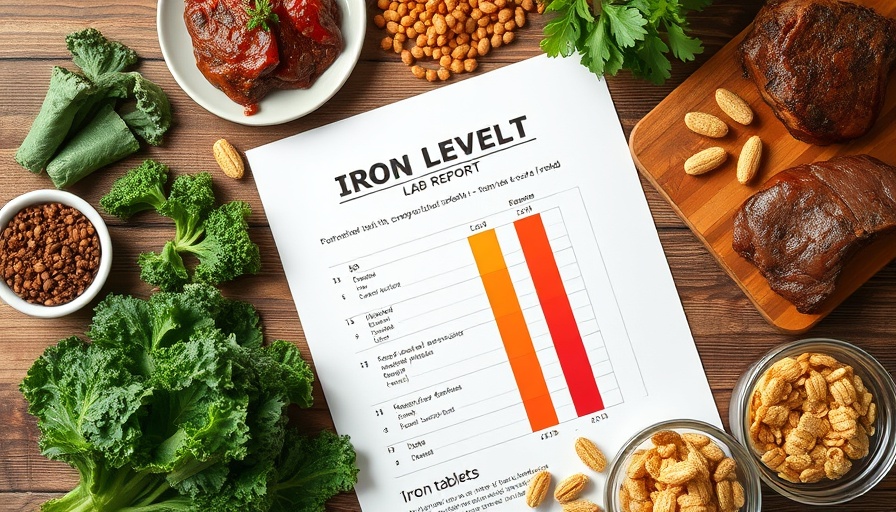
Understanding the Importance of Iron for Your Health
Iron is essential for various vital functions in our bodies, including the formation of red blood cells and the transportation of oxygen to organs and tissues. Keeping iron levels balanced is crucial to our overall health, impacting everything from energy levels to cognitive function.
The Prevalence and Causes of Iron Deficiency
Did you know that approximately 14% of adults in the U.S. suffer from iron deficiency? Among non-pregnant women of reproductive age, this statistic spikes to a striking 37%. Common causes vary from menstruation and pregnancy to surgery-induced absorption issues. For men, conditions such as gastric bleeding or polyps in the colon can significantly contribute to deficiency. Understanding these causes helps us recognize how widespread this issue is.
Recognizing the Symptoms of Iron Deficiency
Symptoms of iron deficiency can be subtle yet impactful. While some individuals may not notice any signs, others report fatigue, irritability, concentration difficulties (often referred to as “brain fog”), shortness of breath, and unusual cravings like pica (craving non-food items like ice). Because these symptoms overlap with various health issues, consulting with a healthcare provider for testing is crucial if you notice persistent problems.
Testing for Iron Levels: What You Need to Know
Diagnosing iron deficiency typically involves two common tests: a ferritin test, which assesses stored iron levels, and a complete blood count (CBC) to analyze red blood cells and determine anemia. If diagnosed with iron deficiency or anemia, understanding treatment options is critical for restoring balance and health.
Dietary Recommendations for Preventing Iron Deficiency
While dietary adjustments can help address iron levels, they often require more than just a simple change. Foods rich in iron include meats (especially organ meats), fortified cereals, legumes like lentils and beans, along with leafy greens such as kale and spinach. However, identifying and treating the underlying causes of deficiency is paramount.
Supplementing Iron: Best Practices
If adjusting your diet isn’t enough, iron supplements are an effective solution. They are accessible and relatively inexpensive, but they can have side effects like stomach discomfort or nausea. To mitigate these issues, it's advisable to take supplements in the evening or every other day instead of daily. Improving iron absorption can also be managed by consuming vitamin C-rich foods alongside iron sources.
The Dangers of Iron Overload: A Cautionary Perspective
While many focus on the dangers of deficiency, it’s equally important to recognize the potential for iron overload, a condition called hemochromatosis. This often goes unnoticed, leading to significant health issues such as liver disease and diabetes. Awareness of both ends of the spectrum is vital for maintaining health.
Why Understanding Iron Imbalances Matters
Awareness about iron deficiency and overload is more than just a medical concern; it’s about your quality of life. Adequate iron contributes to energy, focus, and overall well-being. By recognizing the symptoms and knowing when to seek help, you can actively take charge of your health.
Empower Yourself: Take Charge of Your Health Journey
Ultimately, being informed about your body’s iron levels empowers you to make proactive decisions about your health. Should you suspect iron imbalance, engage with your healthcare provider for testing and tailored advice. Keeping a balanced iron level can lead to improved energy, mood, and overall well-being.
Take the first step to manage your well-being today! If you’re experiencing any symptoms or want to learn more about your iron levels, consider reaching out to a healthcare professional for advice. Your health is in your hands, and the power to make positive changes starts with you!
 Add Row
Add Row  Add
Add 



Write A Comment